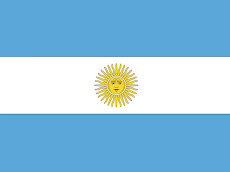
I know I haven't written in a long time, and I'm not sure why. I've been meaning to.
Lately I've been dwelling on the topic of language- something that's obviously been in the forefront of my mind ever since I got here, and I guess still is. I'm still spending a lot of time thinking about the complexities of language, of different accents and different ways of expressing thoughts.
Some weeks ago (or was it months now, even?) a friend of ours asked Rachel and me if it's strange for us to hear friends of ours here from other countries speak English. Most of our Erasmus friends here don't speak English very often, just German, but I have heard it once in a while. The answer to that question is that their accents really don't sound strange to me, something that I found surprising the first time I realized it. I got used to all of their accents in German long before I heard them speak English, and because of it, a friend speaking accented English just sounds to me like they're using their own personal way of speaking, which makes sense when I hear it.
Maybe it's because I have little experience with foreign languages, other than German, but I've been discovering new things about languages all the time- German, but also other languages. I remember, at Oktoberfest, the difficulty I had at first explaining to Italians my aunt's relationship to me: no one understand the word 'aunt.' After a little while, I started introducing her as my father's sister, to which the response was always, "Oh, she's your uncle." Eventually I would just answer, "Yes, my uncle," however strange I felt saying that. While my Italian skills are pretty limited (or pretty non-existent, except when it comes to food) I guessed, and then found out, that the word for aunt in Italian is similar tothe one for uncle. It's interesting because our words, 'aunt' and 'uncle,' are so distinct that they almost seem like entirely separate concepts- the connotations are very different to me, whether or not they should be.
When it comes to classes, I can understand almost everything my professors say, even when they speak quickly. Speaking in class myself is another issue, mainly because I'm still a bit intimidated, but I'll work on that. If there's anyone who's difficult to understand, it's actually the other students, who often don't enunciate clearly, but I'm getting better at that, too.
I usually hear a few English phrases in every class, usually because a phrase is more popular in English, and so not translated. Many classes (in German) here include reading in English, because most of the field's research is published in English, but I didn't end up taking any like that. I do have a professor, though, who loves to use English phrases in his lectures. It doesn't really affect my understanding one way or another, but I find it interesting.
I had a dream last night where I was speaking German. It's the first time that's happened, although I do often find myself thinking in German, especially when I've been spoken little to no English all day. My German has improved here greatly, especially my accent, although there's still a huge divide between the way I understand things in German and in English. I still have a hard time visualizing things I read in German, or remembering specific phrases that I've read, rather than just their meaning. English words just hold so many connotations for me that German ones usually seem less powerful.
On another subject, election night here was interesting, but certainly less climactic than it seems to have been for everyone back home. Wherever I went to watch the returns (the English department party, and two different bars) everyone was tuned into CNN, watching it in English. I celebrated, of course, and stayed up to watch it become official around 6 am, missing my first class the next day. Come Wednesday, though, it was back to life as usual here, I'm glad to report. I can't say for certain what went on at home, but I did hear some reports of Obama-mania/worship gone overboard. I'm hope, at the least, that everyone's keeping their heads and thinking about what 'change' actually means.














